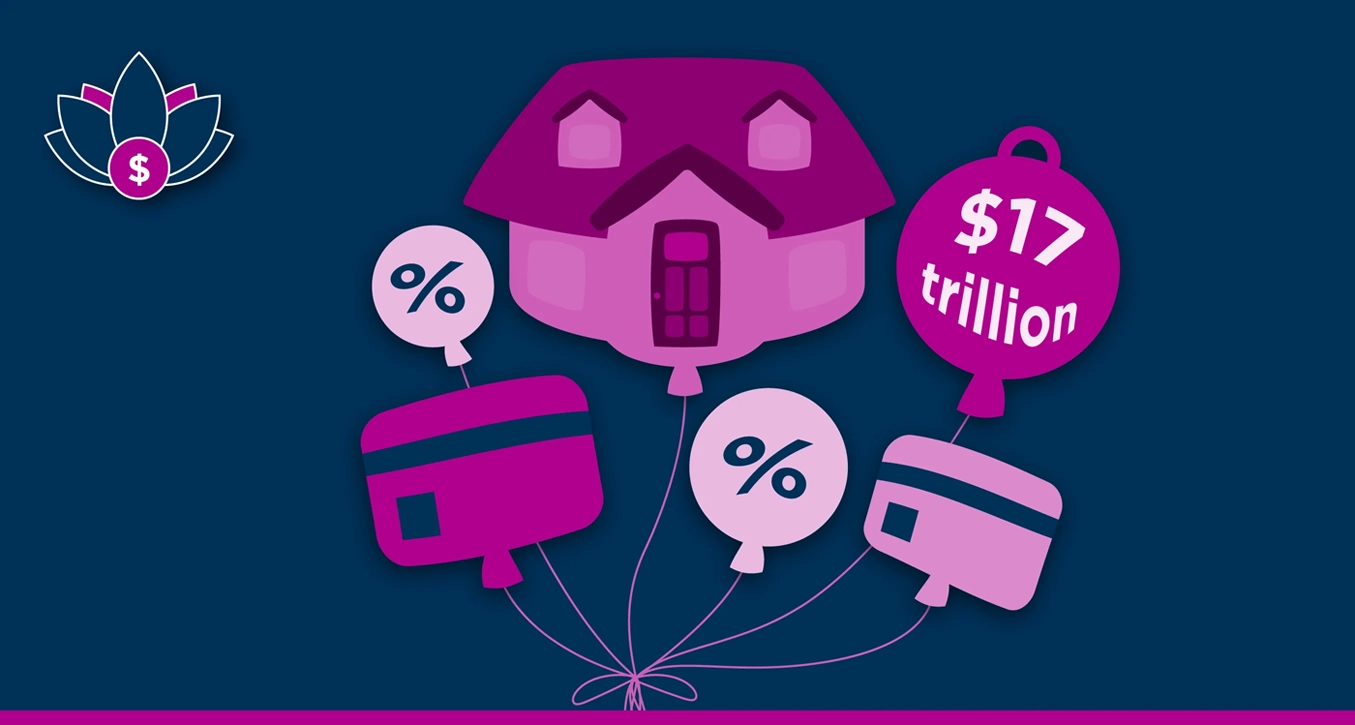To help solve it, this Mental Health Awareness Month, organizations should incorporate Personal Financial Coaching into their mental health benefits, recognizing the connections among worker financial and mental health and the bottom line.

Household debt in the U.S. approached $17 trillion at the end of 2022, a new record, according to the Federal Reserve Bank of New York.
On its own debt is not necessarily a bad thing because not all debt is bad debt which traps workers in a financial abyss. Mortgages for example which make up the majority of the debt can be catalysts for wealth creation.
But credit card balances grew at a record rate in the quarter and delinquencies also rose as workers battled the two-headed monster of rising inflation and interest rates.
This rising household debt is a growing problem for employers because of the connections among financial health, worker productivity, stress, mental health, physical health, and organizational success.
To help solve it, this Mental Health Awareness Month, employers should incorporate Personal Financial Coaching into their mental health benefits.
Financial Health is Mental Health
The majority of U.S. workers are now stressed about money. When workers are stressed out, it takes a toll on their mental and physical health and their productivity drops. Your business or organization suffers.
A recent paper in the Journal of Family and Economic Issues underscores the significant connection between financial health and mental health:
“…higher financial worries were significantly associated with higher psychological distress…The findings suggest that accessible financial counseling programs and public health intervention programs are needed to mitigate financial worries and its negative influences on overall psychological health, with greater attention devoted to vulnerable populations.”
And “Organizational Best Practices Supporting Mental Health in the Workplace” in the Journal of Occupational and Environmental Medicine sums up the astronomical costs of poor mental health:
“The debilitating effects of poor mental health go beyond the direct costs of treatment and include even larger indirect costs related to lost productivity, such as through absenteeism and presenteeism…indirect costs incurred from absenteeism and presenteeism were estimated to be $1.7 trillion annually in 2010 and direct costs added an additional $0.8 trillion, with these costs expected to double by 2030.”
That’s a lot.
So, what’s an employer to do?
Personal Financial Coaching is a Mental Health Benefit
“Given the connection between financial wellness and mental health, employers should consider offering financial coaching alongside their mental health resources,” says PwC’s Employee Financial Wellness Survey 2022.
That’s great advice from our totally disinterested, entirely objective, point of view as a provider of world-class Personal Financial Coaching.
A majority of employers have enhanced their mental health benefits since the beginning of the pandemic. 53% of them added mental health programs per PwC’s Health and Well-being Touchstone Survey, while nearly 40% of them expanded access to mental health services, according to Kaiser Family Foundation’s 2021 Employer Health Benefits Survey. This is welcome news for employees and smart business for employers.
By expanding mental health benefits to include Financial Coaching, employers help employees with their financial and mental health while strengthening your organizations.
You also differentiate yourself as an employer in the battle for talent, where employees are seeking comprehensive benefits that address their growing needs for financial and mental health solutions amidst record debt levels.
Indeed, 97% of employees think employers should work to improve their mental health and 68% want financial wellness benefits like Financial Coaching to manage and avoid debt, per PwC. This Mental Health Awareness Month, it’s time to give them what they want, for your employees, and for your organization.
